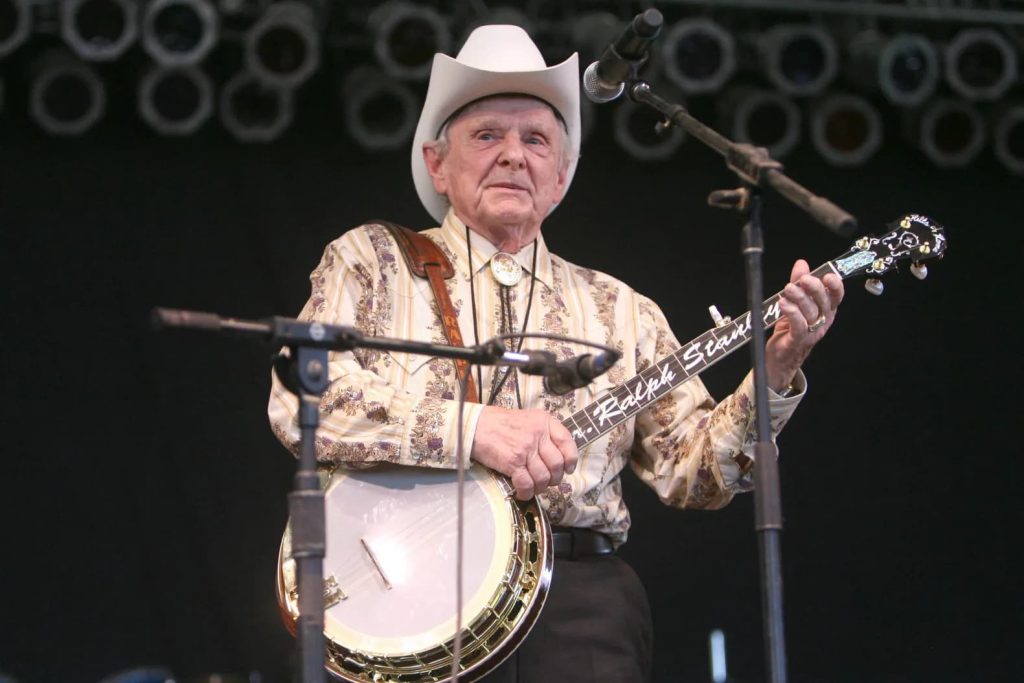
A haunting meditation on mortality, “O Death” by Ralph Stanley is a chilling yet beautiful exploration of the inevitable end we all face.
There’s a certain timeless quality to some songs, a resonance that transcends generations and speaks to the very core of human experience. “O Death,” as performed by the legendary Ralph Stanley, is undoubtedly one of those songs. It’s not just a piece of music; it’s a stark, powerful meditation on mortality, a whispered conversation with the grim reaper himself. This haunting rendition, popularized by its inclusion in the 2000 film “O Brother, Where Art Thou?”, cemented the song’s place in popular culture, introducing it to a new generation while simultaneously honoring its deep roots in Appalachian folk tradition.
While pinpointing a specific chart position for a traditional folk song like “O Death” is difficult, its resurgence in popularity following the release of “O Brother, Where Art Thou?” was undeniable. The soundtrack itself topped the Billboard 200 chart, bringing widespread attention to the song and its performer, Ralph Stanley. This newfound recognition propelled Stanley to new heights in his career, earning him a Grammy Award in 2002 for Best Male Country Vocal Performance for his performance of “O Death”.
The song’s origins are shrouded in the mists of time, likely emerging from the rich tapestry of Appalachian folk music, where themes of death and the afterlife were common subjects of contemplation. These songs were often passed down orally through generations, evolving and adapting along the way. Ralph Stanley’s version, with its raw, mournful vocals and stark banjo accompaniment, captures the essence of this tradition perfectly. His voice, weathered by time and experience, carries a weight of sorrow and acceptance, as if he himself has stared into the face of death and returned to tell the tale.
The lyrics of “O Death” are simple yet profound. They present a dialogue between a person pleading with death for more time and death’s resolute refusal. “O Death, O Death, won’t you spare me over for another year?” the singer implores, only to be met with the cold response, “No, not one.” This stark exchange highlights the inevitability of death, its unwavering presence in our lives. It’s a sobering reminder of our own mortality, a truth that can be both frightening and strangely comforting.
What makes Stanley’s rendition so compelling is the sheer emotional weight he brings to the performance. His voice is filled with a haunting vulnerability, a sense of deep understanding of the song’s themes. The minimalist arrangement, featuring only his banjo, further enhances the song’s starkness and intimacy. It’s as if we’re sitting in a dimly lit room, listening to an old man share his wisdom about life and death.
The impact of “O Death,” particularly Stanley’s version, extends beyond its musical qualities. It’s a cultural artifact, a testament to the power of traditional music to connect us to our past and to each other. It speaks to universal human experiences of loss, grief, and the acceptance of our own mortality. For older listeners, particularly those familiar with the traditions of Appalachian music, the song evokes a sense of nostalgia, a connection to a simpler time when music was often a source of solace and reflection. It reminds us of the power of music to comfort us in the face of life’s greatest challenges. “O Death,” in Ralph Stanley’s masterful hands, is more than just a song; it’s a profound meditation on life, death, and everything in between. It is a timeless piece of music that continues to resonate with listeners of all ages, serving as a powerful reminder of the human condition.